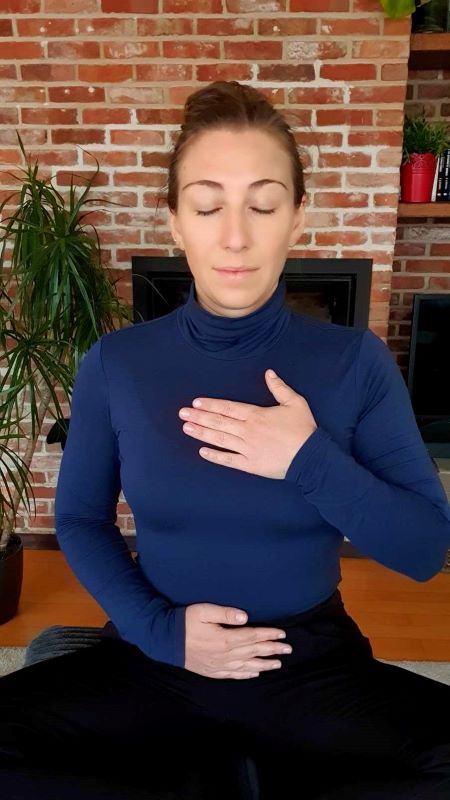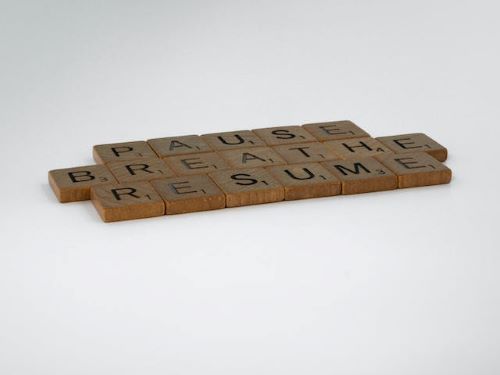The presence of oxygen is the absence of disease. These are not my words, it was Gary Brecka, biologist and breathwork expert, who said this while trying to summarise his entire career into one sentence¹. I am all about breathwork, but even to me this sounded like a pretty bold statement. However, the more I dive into the topic, reading books, articles, taking breathwork training classes and listening to experts, the more I believe he might not be exaggerating.
The way he explains it is that every disease has roots in a lack of oxygen or is aggravated by a lack of oxygen to the brain. For people that don’t have a medical background this might sound very science-y and like a finding from modern medicine, yet if we dig a little deeper, breath science dates back to thousands of years ago. From the Tao, to Hindus, to Buddhists, in all these cultures breath was described as ‘life’ or ‘medicine’. Entire manuscripts have been found on how to do it correctly to live a healthy life and fight off disease, written 2500 years ago.
Fast forward to today, research shows that 90% of people don’t breathe correctly, and it is one of the main contributing factors to chronic pain stress symptoms globally².
90%! A pretty shocking number, it can’t be that bad, right?
So, I started monitoring my own breathing based on what was said to be optimal, and unfortunately found that I checked most of the boxes on the ‘bad breathing’ list: I was breathing too fast, my posture wasn’t great, my breathing was often too shallow, not breathing deep into the belly, with the occasional mouth breathing, and I often felt like I lacked air which led me to breathe even more.

All big no-no’s it turns out. Let’s dive into the WHY:
Dangers Of Mouth Breathing
From all the no-no’s this might be the biggest one. It seems like a pretty harmless thing to do, and it seems to keep us alive just fine. For some, breathing through the mouth has even become the default, because our nose can get blocked, and instead of breathing through a half-working pipe, might as well switch to the open one, that’s what it’s for right? Not really. True it can be used in case of emergency, but mouth-breathing should be avoided as much as possible. Even the ancient civilisations seem to be adamant about this fact.
James Nestor, author of Breath – The New Science of a Lost Art, together with Anders Olsson a fellow breathwork expert, decided to do a little experiment on themselves. For a period of 10 days, they went through life with their noses plugged and measured their vitals 3 times daily. They then relived the same 10 days (same meals, same sports routines, etc.) to see the difference.

Research suggests mouth breathing can have a detrimental impact on our health: from raising blood pressure, and inflammation, to lowering heart variability, decreasing mental clarity, physically changing your breathing pathways and internal structures, impacting your metabolism, to snoring and sleep apnea. For those who think “Snoring isn’t that bad”, think again, apparently it is not natural, and it impacts our sleep quality because you’re ‘stressing yourself out all night’, as Nestor puts it. Yet, we’ve just accepted it as part of our nightly world.
How did their research go?
Even in a short period of 10 days, all the above-mentioned vitals changed for the worse, and they felt awful. Imagine if this wasn’t 10 days, but 10 months, or 10 years, and the implications become chronic…
Benefits Of Nose Breathing
Luckily, when the plugs came out, and they started nose breathing again, the changes happened rapidly, and their health improved. If you’re interested in the details of this specific research, I do recommend reading the book.
I’d like to get into the WHY, what is so magical about nose breathing that it has such a significant impact on our health?

To start with, our nose is our filter, it is the first line of defence against germs, viruses and the pollution that’s floating in the air and filters out a lot of the bad stuff, before letting it into our body. But it doesn’t stop there, the nose also moistens the air for us, it regulates the pressure, the temperature, and helps us breathe in 20% more oxygen than if we were breathing through the mouth. It also increases the production of nitric oxide which expands our airways and helps our lungs work more efficiently. Quite the list!
If you’re thinking, “But my nose is blocked most of the time, how do you want me to breathe?!”, it is still recommended to try and practice it regularly. The body seems to play this game with us called USE IT OR LOSE IT, meaning that the less we use something the less functional it becomes. So, even if it is difficult, through short, regular practice it can regain function.
Now let’s have a look at the other ways to breathe correctly.
Quality Over Quantity
Most of us breathe too much, and ironically, breathing too much can lead to feeling a lack of oxygen and taking even more breaths. When you feel short of breath, try to take slower, deeper breaths, and lengthening the pause between inhalation and exhalation. This rebalances the system, and the feeling of lack of breath actually disappears.

Most of us, unconsciously breathe rather shallowly, so into the chest rather than the belly. This type of breathing is linked to the Sympathetic Nervous System, the part responsible for the stress response.
If we breathe shallowly by default, we are keeping our body in a constant state of stress. This impacts our sleep, our digestion, and our ability to heal. For this, we need to be in a parasympathetic state, which is activated by slow, deep and calm breathing.
The Power Of Breathwork
“By changing the pattern of our breathing we can change the pattern of information being sent to the brain”
Dan Brulé³
What’s my biggest learning? That, when it comes to breathing, we can be both the driver as well as the passenger. It happens automatically, and we will survive if we let it run its course, but we can also make conscious choices to alter it and work with our bodies to optimise our health. Because, surviving is great, but it isn’t the same as feeling healthy, now is it?
The beauty of breathing is that it is totally free, and part of our natural toolbox for self-healing. I am a huge promoter of self-healing modalities, I believe it is the foundation of our health, and breathwork might just have shifted to the top of my list. It affects all our internal organs, and systems, our physical and emotional state⁴. Improving the way you breathe will trickle down and bring benefits to all other areas too, the ones we have less control over. And you can start with just a few minutes per day.
What You Can Do
Don’t worry, you don’t have to immediately adopt fancy breathing practices and block out an hour every day to Wim Hof yourself into ice baths. By making a few simple tweaks to your current breathing pattern (assuming you are part of the 90%, otherwise, please become my mentor).

The first step is to create awareness: what is your current breathing like? Do you breathe through your mouth? Take note a few times a day to become aware of how you are breathing and take some conscious deep, slow, nose breaths. The aim is to get the foundation right.
By doing some conscious practice, even for a few minutes a day, it will at some point become a default.
By practising during your waking hours, and slowly changing your default way of breathing, your sleep breath will automatically adapt to this new default. You will find that your sleep will significantly improve, with all the health benefits as a consequence. But remember: start simple, that is the key to adopting any new habit and will make it more likely to stick.

Our ancestors held a lot of wisdom when it comes to living healthy and in balance. Health doesn’t need to be complicated, and I often feel like the simpler the modality the more effective it is.
Sources
- Diary of a CEO podcast E225: The Man Who Predicts How Long You Have Left To Live (To The Nearest Month): Gary Brecka, February 2023, link
- Breath – the new science of a lost art, James Nestor (2020), New York, Riverhead Books
- Just Breathe – Mastering Breathwork, Dan Brulé (2017), New York, Simon & Schuster
- Zaccaro A, Piarulli A, Laurino M, Garbella E, Menicucci D, Neri B, Gemignani A. How Breath-Control Can Change Your Life: A Systematic Review on Psycho-Physiological Correlates of Slow Breathing. Front Hum Neurosci. 2018 Sep 7;12:353. doi: 10.3389/fnhum.2018.00353. PMID: 30245619; PMCID: PMC6137615.
Main – Photo by Spencer Selover



